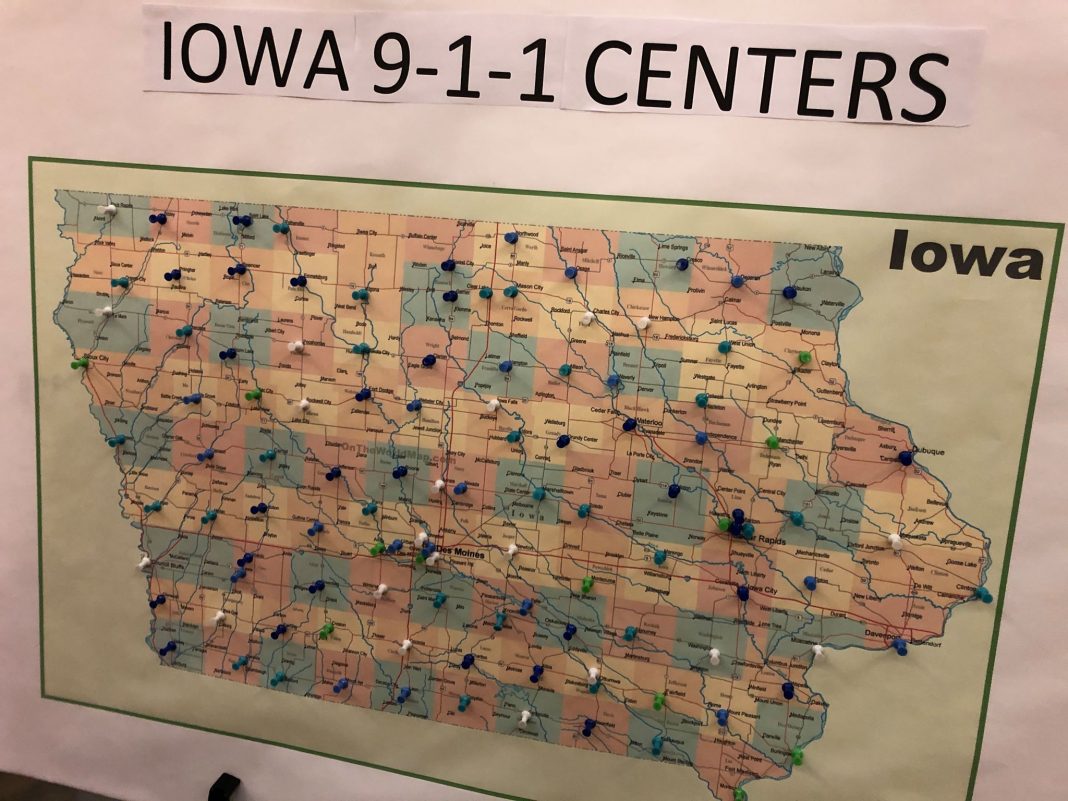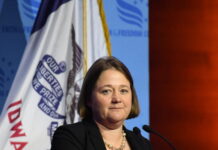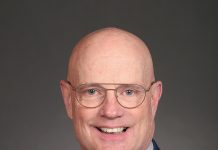STORY CONTINUES BELOW AD:
FRUSTRATED WITH FAKE NEWS? THIS IS YOUR CHANCE TO DO SOMETHING ABOUT IT!
If you are someone who believes the media refuses to give a fair shake and just report the facts, then consider supporting The Iowa Standard.
The Iowa Standard is a free online news source so we can reach as many people as possible. But we need to raise money! We are asking our readers to help support us as a news alternative entering 2020. If you could, please consider showing a sign of support to The Iowa Standard by making a contribution here. Or, you can use Venmo and make a contribution to @Iowa-Standard-2018.
You could also send a check to:
PO Box 112
Sioux Center, IA 51250
Dispatchers hear it all. And on Wednesday, state legislators were hearing from them.
“We are here today (Wednesday) to recognize an awareness of 911 telecommunicators and have them move up to the classification for first responders,” said Cara Sorrells, a dispatcher from Washington County. “Right now we’re treated as office staff or clerical staff and we really aren’t. We are on the scene, not physically, but we are on the scene with every 911 call that comes in. We give pre-arrival instructions and handle everything from a suicidal caller to somebody having chest pains, a heart attack — delivering a baby over the phone.”
Jason Hoffman of Carroll County said the federal government classifies dispatchers as clerical workers and office staff. There’s a national effort to get the federal government to change that, but it hasn’t happened.
“So other states have started to move on statewide legislation that recognizes dispatchers as first responders,” he said. “The states of Texas and California both already passed similar legislation to what we’re introducing. We think that Iowa should be a leader in this area and recognize Iowa’s dispatchers and telecommunicators as first responders as well.”
Hoffman said the groups lobbying at the Capitol on Wednesday, NENA (National Emergency Number Association, Iowa Chapter) and APCO (Association of Public-Safety Communications Officials, Iowa Chapter), have a whole host of reasons dispatchers should be classified as first responders.
“It requires a unique skill set,” he said of dispatchers. “They have to have on-the-job training as well as certifications and formal training in any number of areas. They’re negotiating with people on the phone, extracting information from difficult callers, addressing medical issues. And those are things that we think are important to bring awareness to the fact that dispatchers are doing the job for public safety and supporting their public safety responders, working 24 hours a day, 365 days a year. When everybody is enjoying their Thanksgiving dinner, a dispatcher is working taking 911 calls.”
Hoffman said dispatchers would just appreciate recognition.
“If we could get more movement nationally, then we’d start looking at things like wage and hours rules becoming a little more lax for public safety,” he said. “Twelve-hour shifts, not having to look at overtime requirements and in a 40-hour workweek within seven days kind of thing. That’s important because if dispatchers can work a couple of extra hours every day and then get longer days off between their rotations, that allows them decompressing time.”
That would be nice due to the stress dispatchers deal with.
“Dispatchers listen to the most horrific things happening in real-time,” Hoffman said. “We’re getting that raw emotion from the caller that’s happening right as the call is made.”
And it’s difficult since the dispatcher can do nothing physically to intervene.
“Every dispatcher has those calls where they recall wanting to jump through that line,” Hoffman said. “Just get there and do something. Those are the things that we all take back and it affects us and emotionally it takes a toll. The idea that we’re not recognized as first responders in that respect is something that’s a rub for every dispatcher.
“Every time there’s first responders who are recognized, every time there’s a picture in the paper, every dispatcher is looking at the picture and looking for the dispatcher. Where’s the person wearing the dispatch polo? Where’s the person with the headset? Where’s the person representing me? And they’re never there. Not only are we not seen by the public, but we’re not recognized by the public either. The first step is recognition with the state legislature.”
Both Hoffman and Sorrells said legislators were surprised to hear there is no recognition for dispatchers as first responders.
“Especially once they start to understand the job that we do,” Hoffman said. “Some of them have been unfamiliar with our job. Being able to sit down with them today and educate them about what we do for the citizens of Iowa has been really important.”












